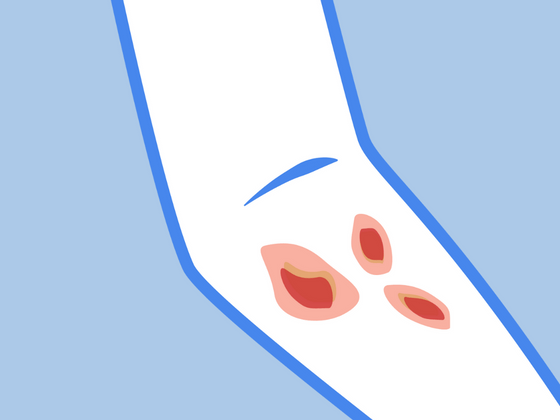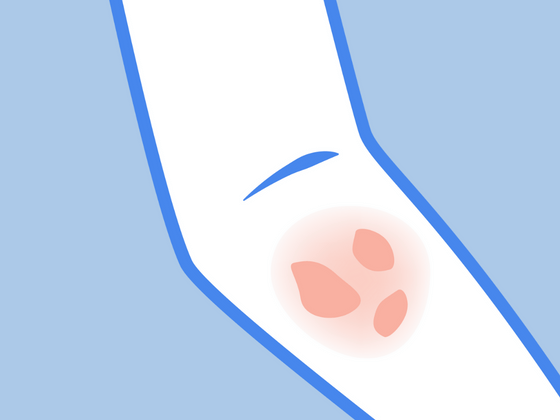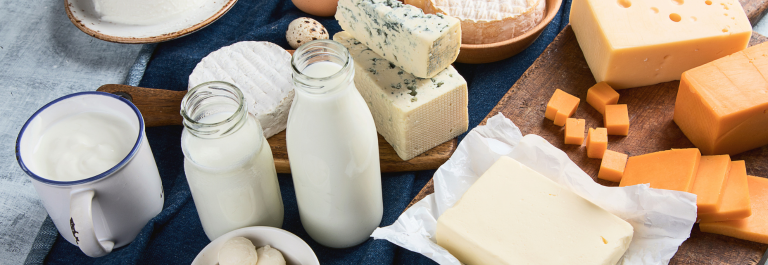Curious about the root cause of your baby's itchy rash? The link between feeding choices and your little one's eczema might prompt questions about breastfeeding or other factors affecting their skin health. Yet, fear not! Simple tips and insights can guide you toward understanding and managing your baby's eczema, ensuring a healthy start for your little bundle of joy with proper eczema cream for babies.
In this blog, we'll explore the relationship between breast feeding and eczema, shedding light on:
-
The link between diet, breastfeeding, and eczema
-
The potential impact of breast milk for eczema
-
How to manage pregnancy eczema naturally
Let's delve into this exploration, debunking myths and uncovering strategies to navigate your baby's eczema journey with confidence and clarity.
Does Breastfeeding Prevent or Increase Eczema Risk?
There's a lot of mystery surrounding whether or not breast milk can help prevent the onset of eczema in infants. Numerous studies have been conducted. For example, a study conducted by the American Academy of Pediatrics (AAP) indicates that breastfed babies may have a reduced risk of developing atopic dermatitis, a form of eczema, compared to formula-fed infants. However, a conflicting Canadian Family Physician et al. study highlights that breastfeeding alone may not entirely prevent eczema. Factors like genetics, environmental triggers, and other health conditions may also contribute to its development.
What's the Link Between Diet, Breast milk and Eczema?
The link between a mother's diet during breastfeeding and an infant's eczema has been the subject of considerable debate. While some studies suggest that certain foods consumed by lactating mothers, like cow's milk, peanuts, and tree nuts, could exacerbate eczema symptoms in some infants, there isn't a universal consensus on this matter.
Under the guidance of a healthcare provider or lactation consultant, an elimination diet might be recommended for mothers to identify potential triggers. However, the effectiveness of such diets varies among individuals, and further research is necessary to establish a conclusive link between a mother's diet and her baby's eczema.
Exploring Pregnancy Eczema
Ah, the marvels and mysteries of pregnancy! While pregnancy can be a magical time for the body, hormonal changes can also bring forth unwelcome guests like fatigue, nausea, and skin-related surprises such as hyperpigmentation and acne. Hormonal changes can also lead to skin conditions like nipple dermatitis or sore nipples. These discomforts may affect breastfeeding and potentially influence the infant's skin health. Hormonal fluctuations, stress, or a compromised immune system during pregnancy can contribute to developing skin conditions that could affect nursing.
How to Safely Nurse With Breast Eczema
For mothers experiencing nipple discomfort or skin conditions like nipple dermatitis while breastfeeding, seeking guidance from a healthcare provider is crucial. Some ways to reduce discomfort and aid healing include using nipple shields or hydrogel pads. Additionally, applying expressed breast milk topically could offer relief due to its antibacterial and moisturizing properties.
It's important to note that any topical application should be medically reviewed and discussed with a healthcare professional to ensure its safety and effectiveness, especially when managing conditions like eczema.
Tips for Breastfeeding with Eczema
Don't forget that your health is super important for your baby's well-being, too. Here are our top tips to help mothers who breastfeed their babies:
Look After Yourself
Make sure to catch those Zzzs, get moving with some light exercises, and eat a well-balanced diet full of all essential nutrients. Additionally, remember to schedule some time for some self-care, too. Even just five minutes of meditation each day can make a huge difference. Remember, a healthy, happy you means a happy, healthy baby.
Determine your Food Triggers
As previously noted, what you eat plays a significant role in both your and your baby's health. It's essential to pinpoint potential food triggers, like cow's milk, gluten, or eggs, and consider removing them from your diet. Unsure about your triggers? Undergoing elimination diets can help pinpoint your food triggers.
Before making any dietary changes, it's wise to consult a dietician or physician. This ensures that both you and your little one continue receiving the necessary nutrients. Your health and your baby's development are top priorities, so seeking professional guidance is always a good call.
Keep your Skin Moisturized
Your sore nipples, dry skin, and breast eczema deserve a little pampering. This Baby & Adult Soother is a blend of only three Chinese herbs immersed in olive oil and beeswax base. Its all-natural ingredients help relieve symptoms of eczema, keratosis, pilaris, rashes, and more, providing a soothing touch your sensitive skin will appreciate! For additional natural relief, consider our beef tallow cream.
Wear a Skin-Friendly Bra
Dealing with sensitive skin or atopic eczema around the bra area when breastfeeding can be uncomfortable. This 100% Organic Cotton Bra Liner was designed to offer comfort. The hypoallergenic fabric is devoid of latex, spandex, and chemicals. Its gentle cotton won't provoke skin irritation and effectively absorbs moisture, helping to avert additional discomfort.
Doing What's Best for Your Baby
Understanding the nuances of breastfeeding and its potential impact on a baby's risk of developing eczema can contribute to both mother and child's overall health and well-being. With the right guidance and information, parents can confidently navigate parenthood's challenges, ensuring their children's best possible health.








